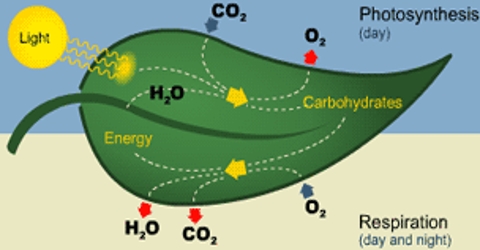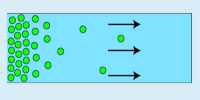Respiration: Respiration can be defined as a physiological process by which the food substances inside the living cells are oxidized to form energy in the form of heat as the main product and carbon dioxide as a by-product.
It is a metabolic process common to all living things. Respiration is the biochemical process in which the cells of an organism obtain energy by combining oxygen and glucose, resulting in the release of carbon dioxide, water, and ATP
Respiratory organs: The mitochondria of cells are the main respiratory organs.
Chemical equation:
C6H12O6 + 6O2 + 6H2O → 6CO2 + 12H2O + 6118 Kcal,heat.
Types: Respiration is of two types:
- Aerobic respiration– Oxygen is important in this process. It occurs in most plants and animals. The organisms which carry on this type of respiration are called aerobes.
- Anaerobic respiration. Oxygen is not important in this process. It releases a small amount of energy. It occurs in yeasts, certain bacteria and some parasitic worms.














